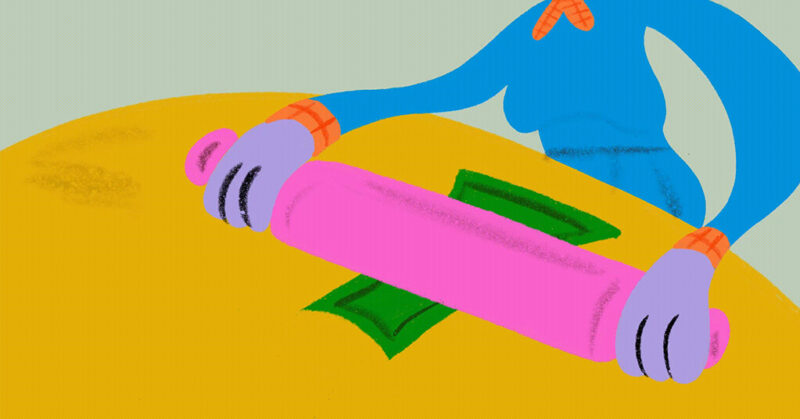Financial Boot Camp for 20-Somethings: Day 3 of 5
It’s time to get your money in order.
Here are all of the things we are not going to do today:
1) Tell you exactly what you shouldn’t spend money on.
2) Spend any time adding up how much a latte a day or a weekly avocado toast might cost.
3) Shame you for not working a side hustle.
Here’s what we will do: Try to persuade you to think just as hard about what a budget represents as you do about any numbers that are on it.
The first principle of budgeting remains the same. Spend less than you make if you possibly can. If it’s an emergency that requires spending more, no shame, no blame — but ask for advice from your most money-wise friend or family member if you get deep into debt.
The second principle, however, is … well, we’re just declaring it the second principle here: A budget is a statement of values. Think about the annual federal budget exercise. The President makes a proposal, and most of the things in it often stand little chance of actually happening.
Federal budgets are a political exercise. But they are also a positioning one: “These are my priorities. Here’s how I want things to be different next year. Here’s what I hope to do more and less of.”
Your budget is positioned the same way, and one exercise can help you see how. If you spend most of your money through a debit or credit card, log into your accounts and seek out all your purchases from the last 12 months or from 2023. Most major financial institutions can categorize the purchases for you with the touch of a button. Some of these tools are not great, but they are good enough for this purpose. (Or, you can pretty quickly manually add up what you spent in 10 categories where you laid out the most money.)
Now, take a look at those 10 figures and rank them by the total dollars you spent. Then, subtract the spending that was mandatory, for basic food and shelter and other things that were necessary.
Look at what’s left. (I get that it may not be a lot if you’re just starting out, but the sooner this practice becomes a habit, the better.) How does it make you feel? Is your spending a reflection of the things you care about the most? How much pleasure did you get out of your spending? If the ranking and the numbers feel good, then your budget reflects your values.
And if not? You aren’t a sinner in need of financial repentance. You just need to spend less on the things that don’t matter and more on the things that bring you the most joy.
When I was in my 20s, I had no choice but to make sense of this quickly. Right away, I realized that drinking in bars and more expensive clothes were not adding much to my life.
I also made a game of seeing how many meals I could get someone else to pay for through work, even as I counted pennies to afford expensive restaurants every so often. Back in 1994, I spent my own money (when I had it) at the late, great East Coast Grill in Cambridge, Mass., where its big flavors of the hot sun changed the way I ate and cooked.
In my 50s, my analysis changed. During the pandemic, I realized that I didn’t miss pricier restaurants all that much. Once they came back online, I found that I was competing with robots for reservations. Who needs the hassle?
What I did miss, however, was live music. With my older daughter, I made a list of the best concert venues in the United States that I hadn’t been to yet, and we resolved to get to them all. So far, we’ve conquered Red Rocks in Colorado. Still to come: the Hollywood Bowl, First Avenue in Minneapolis and the Greek Theatres in both Los Angeles and Berkeley, Calif. As I was writing this, the algorithmic gods delivered Neal Francis unto one of my feeds. I’m not sure I’ve ever gone so fast from “Let’s check this out” to “I’m buying tickets for a show right now.”
Your thing may be fashion, or hiking, or home décor or music gear. I don’t care, and you shouldn’t judge me, either. Your values are not mine, and as long as yours are not doing direct damage to me or others, I don’t get to criticize the things that you value most as evidenced by your spending.
So once you know what’s important to you, how do you keep track of the money that you do have to work with?
You may not need an app for this. The old-school approach — a forcing mechanism, really — is to pay cash for everything. You begin each pay period or month with a set of envelopes for each category and the right amount of money in each one. When it’s gone, it’s gone.
If you do want a digital assist, start with some questions about what is most important to you in a tool. Some apps are better at things like debt management or tracking your net worth than they are at keeping an eye on your spending.
Some readers may remember Mint, a budgeting tool that took the world by storm about 15 years ago. It’s gone now — Intuit acquired it and eventually killed it off — but I recently did a guide to some of the alternatives.
Most good apps cost at least some money. If you don’t want to pay for budgeting help, you could try out any apps that offer a free trial; see what features and categories appeal to you; and then attempt to recreate them in your own spreadsheet or some of the free spreadsheet-based budget templates that are floating around online.
And if this all seems like too much? Maybe pick the three categories where you spend the most and track only those figures every couple of days against whatever goal you have set. Or pick just one, since you have to start somewhere.
As you can tell, we’re aggressively neutral on form, forms, format, formatting, all of it. But we’re pretty fierce about the necessity of some kind of practice.
Do something and see if it’s habit forming. There’s a pretty good chance that paying more attention than you were a month or a year ago will leave you feeling better than you did then.
Action items
-
Ask your friends how they track their spending. And if they don’t, ask them why, while emphasizing that you’re coming from a place of genuine curiosity and not judgment.
-
Think hard — without looking at any of your own spending — about the three things that brought you the most joy in the last year that cost at least some money.
-
Then think about the things that felt wasteful or didn’t deliver the hit of happiness you expected. Is it easy enough to avoid those products or services in the future, or spend less on them?








